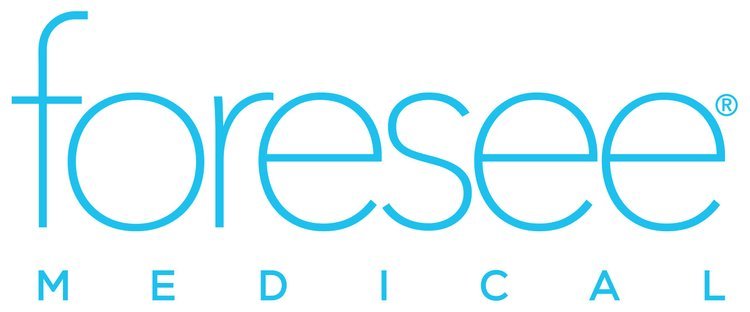Uncovering New Diseases Through Augmented Intelligence
In the constantly advancing field of healthcare, the early detection and identification of new diseases are critical for enhancing patient outcomes and public health. Advanced technologies like Natural Language Processing (NLP) and Machine Learning (ML) AI are reshaping this process, offering healthcare professionals powerful tools to discover new diseases in clinical settings. However, it's important to remember that these technologies aim to complement, not replace, human intelligence and creativity. Instead, we should focus on augmented intelligence (AI+), which enhances and amplifies human creativity and problem-solving capabilities.
The Role of Natural Language Processing in Disease Detection
Natural Language Processing (NLP) is a branch of AI that focuses on the interaction between computers and human language. In the context of AI in healthcare, NLP can analyze vast amounts of unstructured data, such as clinical notes, patient records, and research papers. This capability is crucial for identifying patterns and correlations that might be missed through manual analysis.
Key Benefits of NLP in Healthcare:
Data Extraction: NLP algorithms can extract relevant information from clinical notes and patient records, identifying symptoms, diagnoses, and treatment outcomes mentioned in free-text format.
Pattern Recognition: By analyzing both coded data and the extracted unstructured data, NLP can detect patterns and trends. For instance, if multiple patients present with a unique combination of symptoms that do not match known diseases, this pattern can be flagged for further investigation.
Real-time Monitoring: NLP can provide real-time analysis of incoming data, enabling healthcare providers to identify potential new diseases as they emerge. This capability is particularly valuable in detecting outbreaks of infectious diseases or new syndromes.
Enhancing Disease Discovery with Machine Learning AI
Machine learning algorithms can significantly augment the capabilities of NLP by learning from historical data and making predictions. Here's how ML AI can contribute:
Key Benefits of ML AI in Healthcare:
Anomaly Detection: ML models can recognize what constitutes 'normal' data patterns. When an anomaly is detected—such as an unusual spike in certain symptoms or a new combination of diagnostic codes—the system can alert healthcare professionals.
Predictive Analysis: ML can predict potential new disease outbreaks based on historical data and current trends. For example, during a flu season, ML algorithms can analyze data to predict the emergence of new flu strains.
Improving Accuracy: Machine learning models can continuously improve their accuracy by learning from new data, refining the detection of new diseases, and reducing false positives.
Case Study: Detecting a New Disease
Imagine a scenario where a hospital's medical coding software, enhanced with NLP and ML AI, identifies an unusual cluster of symptoms reported in several patients. These symptoms include severe fatigue, muscle pain, and unexplained rashes. The system cross-references these symptoms with existing medical codes and finds no exact match. The NLP component extracts detailed descriptions from clinical notes, while the ML algorithm detects an anomaly in the pattern. The integrated system flags this cluster for further investigation. Healthcare professionals are alerted, and a deeper analysis is conducted, leading to the identification of a new viral infection.
Embracing Augmented Intelligence (AI+)
While these technologies are transformative, it's vital to emphasize that the aim is not to replace human intelligence and creativity. Instead, the focus should be on augmented intelligence (AI+), which enhances and amplifies human creativity and problem-solving abilities. Augmented intelligence is designed to complement and elevate the unique qualities that humans bring to the table, ensuring our innate abilities are not overshadowed but rather highlighted and expanded.
Benefits of Augmented Intelligence:
Enhancing Human Attributes: Augmented intelligence prioritizes enhancing your unique human attributes rather than replacing them. It leverages advanced technologies to support and extend our natural capabilities, enabling us to achieve more than we could on our own.
Maintaining the Human Touch: By integrating AI+ into our workflows and daily lives, we can unlock new levels of innovation and efficiency, all while maintaining the essential human touch that is crucial in many aspects of life and work.
Fostering Creativity and Empathy: With augmented intelligence, you can focus on what truly matters: creativity, empathy, critical thinking, and the nuanced decision-making that defines human experience.
The Way Forward
The integration of NLP and machine learning AI with computer assisted medical coding software offers a powerful approach to discovering new diseases in clinical settings. By leveraging these technologies, healthcare providers can detect patterns, identify anomalies, and predict outbreaks with greater accuracy and efficiency. While challenges remain, the potential benefits for patient care and public health are immense.
Ultimately, augmented intelligence is about creating a harmonious partnership between humans and technology. It's about ensuring that while technology continues to advance, it does so in a way that enhances human potential and preserves the core elements of what makes us uniquely human. By adopting AI+, we can look forward to a future where technology supports our growth and creativity, helping us to achieve more while staying true to our human essence.
By staying at the forefront of technological advancements, healthcare professionals can ensure that they are equipped to identify and combat new health threats, ultimately leading to better health outcomes for all.
Are you aiming to boost human creativity and problem-solving in your organization with cutting-edge AI technology? Discover how ForeSee Medical can provide you with valuable HCC risk adjustment coding support, seamlessly integrating it with your EHR system.
Blog by: The ForeSee Medical Team




